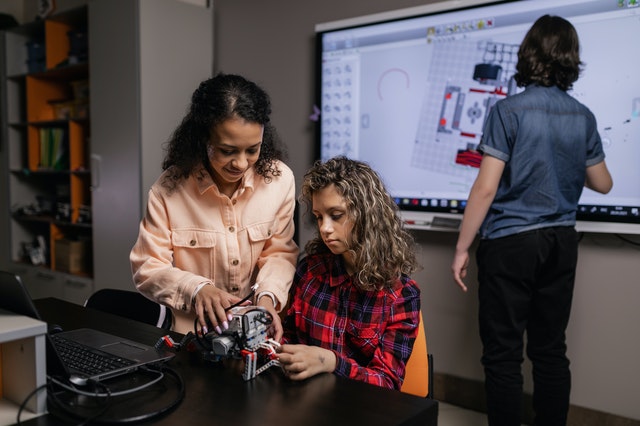
Why Student Voice and Choice is More Important Than Ever
There is an old proverb about teaching a man to fish that people love to quote: “give a man a fish you feed him for a day. Teach a man to fish and you feed him for a lifetime.” It makes sense - teaching someone something is a far greater gift than just giving it to them. But, if we simply teach everyone to fish, whether they want to learn to fish or not, we are missing the point: we should teach people what they want to learn.
Much has been written about the importance of giving students choice about what and how they learn. We know from research as well as observation that student agency is powerful. It helps students develop important skills while increasing engagement. Allowing students to tell teachers how they learn best, rather than having to learn how everyone else does (and also what everyone else does) means they are more likely to develop mastery. Letting students make choices changes how they feel about school - making it is less something that is done to them and more something that they do for themselves.
 Courtesy Trevor MacKenzie and Rebecca Bathurst-Hunt
Courtesy Trevor MacKenzie and Rebecca Bathurst-Hunt
A few months into what is our third school year to be impacted by the Covid-19 pandemic, it is potentially more important, and more challenging than ever, to consider how we provide voice and choice to our students.
Our students have suffered tremendous loss - of family members who got sick, of routines that once were normal, of friends who they didn’t see for long periods of time or who moved away, of the security of parents bringing home a regular paycheck, and of much more. Some spent the better part of March 2020 to June 2021 learning mostly through screens and mostly from teachers who were not prepared to teach online. Some signed in every day and succeeded, others signed in, but their minds wandered, and a third group, and this group is much larger than we want it to be, rarely signed in at all. The experiences of kids all across the country were uneven, unequal, and brought into an even stronger light the deep inequities of our education system.
In light of this, the jobs of schools and educators have grown even more complicated and there is still so much to do. But for now, let’s focus on two key priorities. The first is unfinished learning – for every student who missed content and was unable to master foundational skills and concepts over the last 18 months, we need to recognize the unfinished learning and support those students. This will take differentiation and personalization in all its forms: small group, tutoring, and extended learning opportunities during, before and after the traditional school day. This one, for many leaders, is not easy but is more obvious. We have strategies to accelerate learning; we know there are proven methods for intervention.
The second is easier to ignore, but not less important. It is critical that we re-engage students in school and instill a love of learning. In the rush to “make up” for lost learning we can easily fall into the trap of forgetting about everything else. But taking away art to give students more math is not the answer. Spending time on what is missing for learners without spending time on what they love is not how we will bring them back and get them on the path to reaching their potential. To increase student engagement we need to increase student agency. We need to help them to identify and pursue their passions. We need to not only support their learning of core academic content but also support their growth into adulthood through interest-led learning.
Prior to the pandemic there were hundreds of school districts doing work to transform teaching and learning in these ways - districts like Fresno Unified School District and Dallas Unified School District and Enlarged City School District of Middletown to name just a few. Some talked about personalized learning while others gave it another name, but these districts were committed to tenants of voice and choice, of students being able to learn in ways that met their needs and matched their interests. Coming out of the pandemic we have kids across the country who, during the time when they could not attend school in person, may have found the time to make some of their own choices about what they learned. They read more books on certain subjects or watched videos on YouTube or TikTok or took classes on Outschool. And now they are back in school and they both want and need more. It is not enough to do core content or learning acceleration; they also need the time and space to learn about what they love.
These next few months and then the next few years are going to matter tremendously. The long term social, emotional and mental impacts of this pandemic are likely to be long-lasting and currently unknown. We have much work to do to support students in all the ways we can: in catching up, in moving ahead, and in being excited about and agents of their own learning. If we choose to only focus on academic support, and not allow our students some choice in what they love, we will be making the wrong choice. If you teach someone to fish and they hate the act of doing it and the taste of fish, it won’t really feed them for life.
Outschool is the largest provider of high-quality, interactive online classes for kids. We help learners discover their interests and help schools offer voice and choice to students through small-group learning experiences. Want to learn more on how Outschool can help your school empower your students? Schedule a demo today.


